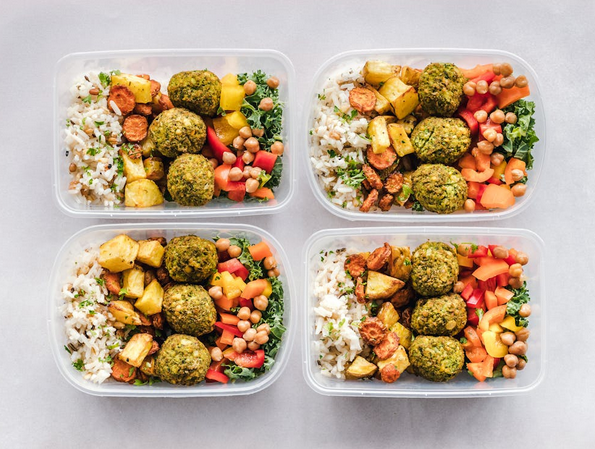Are you tired of thinking that eating healthy means breaking the bank? Well, think again. Healthy eating doesn’t have to cost a fortune. In fact, with a little creativity and planning, you can enjoy nutritious meals without blowing your budget. Get ready to discover some delicious and wallet-friendly meal ideas that will nourish your body and please your taste buds. Let’s show you how to eat well without spending a fortune.
Meal Planning and Preparation

Meal planning is a key component of eating healthily on a budget. Take the time to plan your meals for the week ahead, considering your dietary preferences, nutritional needs, and available ingredients. By planning your meals, you can avoid impulsive purchases and make the most of your grocery budget. Additionally, dedicating time to meal preparation can help streamline your cooking process and ensure that healthy options are readily available when hunger strikes.
Embrace Seasonal and Local Produce
Opting for seasonal and locally sourced produce is not only environmentally friendly but also budget-friendly. Seasonal fruits and vegetables are often more abundant and less expensive than their out-of-season counterparts. Visit local farmers’ markets or join a community-supported agriculture (CSA) program to access fresh, affordable produce while supporting local farmers and growers. Incorporating a variety of fruits and vegetables into your meals adds nutritional diversity and flavor without breaking the bank.
Bulk Buying and Smart Shopping
Buying in bulk can significantly reduce your grocery expenses, especially for staple items such as grains, legumes, and spices. Look for bulk bins at grocery stores or consider purchasing larger quantities from wholesale retailers to take advantage of cost savings. Additionally, be mindful of sales, discounts, and coupons when shopping for groceries, and consider purchasing generic or store-brand products to save money without sacrificing quality.
Focus on Plant-Based Proteins
Incorporating plant-based proteins into your diet is not only budget-friendly but also beneficial for your health and the environment. Beans, lentils, tofu, and tempeh are affordable and versatile sources of protein that can be used in a variety of dishes, from soups and stews to salads and stir-fries. By reducing your reliance on expensive animal proteins and incorporating more plant-based options into your meals, you can save money while improving your overall health and well-being.
Minimize Food Waste

Reducing food waste is essential for both your budget and the environment. Plan your meals carefully to minimize excess food purchases, and store leftovers properly to ensure they remain fresh and edible for future meals. Get creative with leftovers by incorporating them into new dishes or repurposing them for snacks or lunches. Additionally, consider composting food scraps to minimize waste and nourish your garden or houseplants.
Invest in Essential Kitchen Tools
Equipping your kitchen with essential tools and equipment can facilitate healthy eating and streamline your cooking process. Invest in quality kitchen essentials such as a sharp chef’s knife, cutting boards, pots and pans, and storage containers to maximize efficiency and convenience. By having the right tools at your disposal, you can prepare nutritious meals with ease and confidence.
In conclusion, healthy eating on a budget is not only achievable but also rewarding. By implementing practical strategies such as meal planning, embracing seasonal produce, buying in bulk, focusing on plant-based proteins, minimizing food waste, and investing in essential kitchen tools, you can prioritize both your health and your finances. With a little creativity and resourcefulness, you can enjoy delicious, nutritious meals without breaking the bank.




